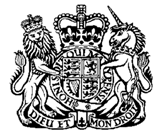Treasure Act 1996

Below you will find a copy of the Treasure Act of 1996
“Disclaimer: The information provided on this website about the UK Treasure Act 1996 was accurate at the time of publishing. However, we do not guarantee the accuracy or completeness of this information. It is the responsibility of the user to verify the information by checking the official government website for the most up-to-date version of the legislation. We bear no responsibility for any actions taken based on the information provided on this website.”
To view the latest version of the legislation please click Treasure Act 1996

Coroners’ jurisdiction
Rewards, codes of practice and report
Miscellaneous
“(10A) This Article does not apply in relation to an object if the person who found it believes or has reasonable grounds for believing that the object is treasure within the meaning of the Treasure Act 1996.”;